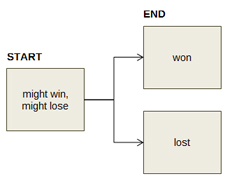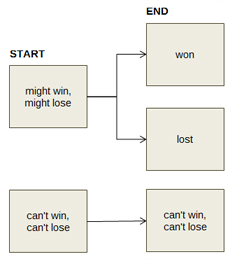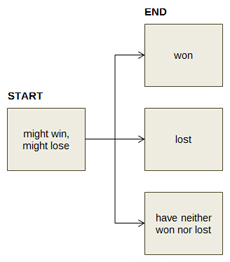There's also a subset of cooperative/competitive games, where a team of players will be pitted against another "team", generally a single player. Fantasy Flight does a lot of these games: in Middle Earth Quest, for instance, a team of several players (the "good guys"; think The Fellowship in LotR, except the game takes place prior to the main trilogy) unites against one single player, who controls Sauron. At the end, either the players or Sauron will win; additionally, I believe (though I will have to check myself on this when I can dig up the rule book) each player also has an individual quest, so while most players have a common cause, they also have unique subplots as well, which can guarantee various degrees of "winning" based on whether or not they are completed.
Similarly, in Betrayal at the House on the Hill, all players start out allied with one another, but part-way through the game, a second phase, the Haunt, begins, and based on semi-random conditions one player is determined to be the traitor, and is pitted against the rest of the team. Either the traitor or the "heroes" will win, and the other(s) will lose.
Additionally, it is possible, in certain cooperative games (Arkham Horror/Eldritch Horror, Forbidden Island/Forbidden Desert, etc.) where the players are generally wholly cooperative and playing against the board, rather than each other, for the team to win, but for one or more PCs to have died during the game. So if, for instance, in a game of Arkham Horror, you have five Investigators and you defeat the Ancient One (or win before it awakens), but two Investigators die over the course of the game, the argument could be made that the three players who survived "won", while the other two either didn't win, or "lost"; since total player death is considered a lose condition, it makes sense that if some, but not all, players die, not all players have "won" the game.
Of course, this all depends strongly on how you are defining winning, losing, and the grey area in between, if indeed there is any (I would argue there is, but I can certainly see the argument for the binary win/lose system) but my ultimate answer is yes, with some caveats.


